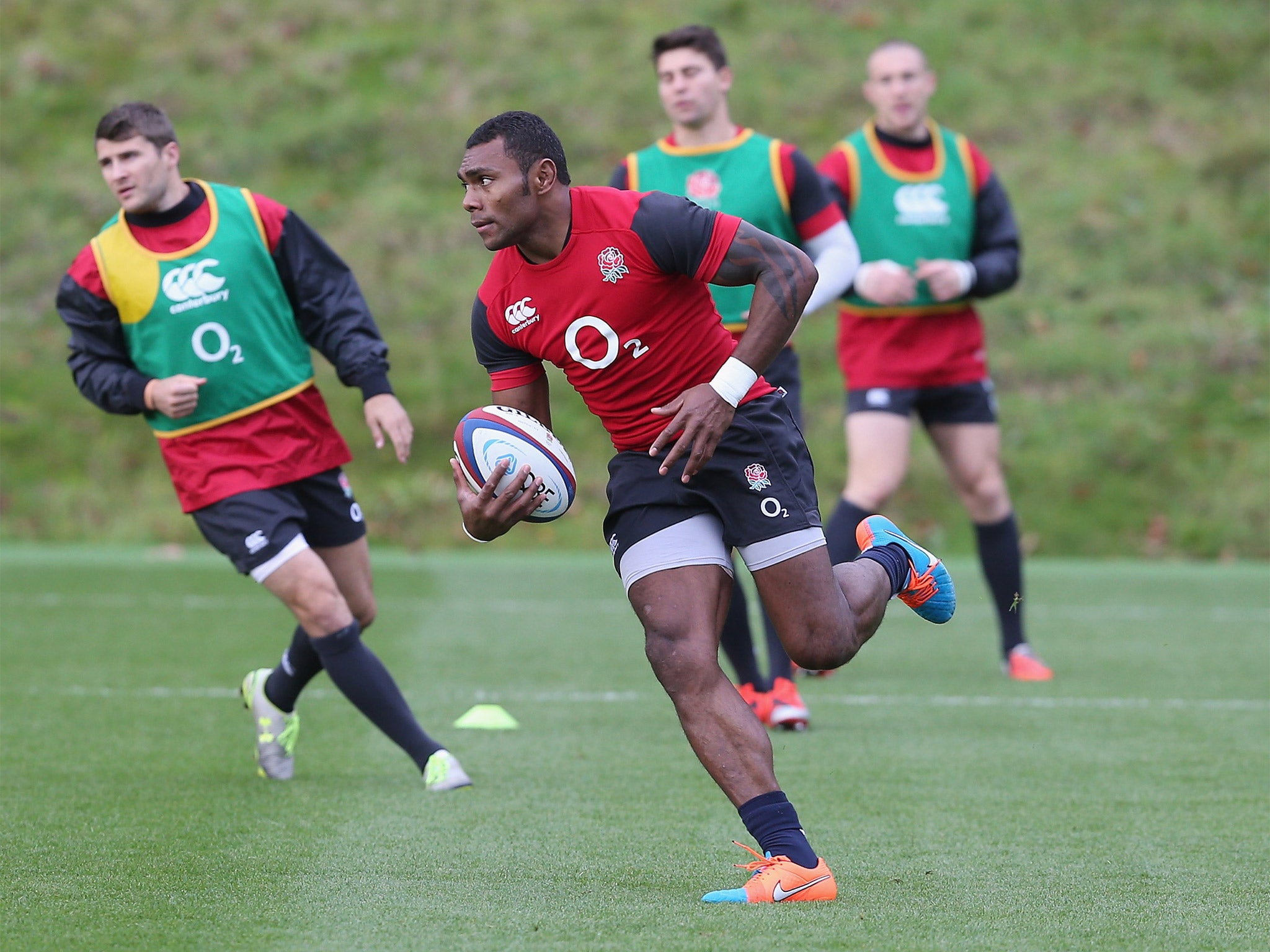England vs South Africa: Semesa Rokoduguni ruled out of Springboks clash with Anthony Watson set to step in
Hip injury sidelines winger after debut while Mike Catt supports continuity at centre

Your support helps us to tell the story
From reproductive rights to climate change to Big Tech, The Independent is on the ground when the story is developing. Whether it's investigating the financials of Elon Musk's pro-Trump PAC or producing our latest documentary, 'The A Word', which shines a light on the American women fighting for reproductive rights, we know how important it is to parse out the facts from the messaging.
At such a critical moment in US history, we need reporters on the ground. Your donation allows us to keep sending journalists to speak to both sides of the story.
The Independent is trusted by Americans across the entire political spectrum. And unlike many other quality news outlets, we choose not to lock Americans out of our reporting and analysis with paywalls. We believe quality journalism should be available to everyone, paid for by those who can afford it.
Your support makes all the difference.Semesa Rokoduguni’s international career, which began against the All Blacks just four days ago, hit its first bump in the road when Stuart Lancaster, the England coach, decided the Bath wing would not recover from a hip injury in time to face the Springboks in this weekend’s high-pressure game at Twickenham. The Fijian-born serviceman may well be replaced in the starting line-up by his club-mate Anthony Watson, who also made a Test debut against the New Zealanders, although Marland Yarde of Harlequins was also named in a 24-man party.
Lancaster also decided to retain the services of the experienced Wasps flanker James Haskell, largely because Tom Wood of Northampton, the senior blind-side specialist, was still feeling the effects of Saturday’s match and failed to take a full part in training. Otherwise, the red-rose hierarchy are sticking with the men who came up short against the world champions.
Rokoduguni, a Lance Corporal in the Royal Scots Dragoon Guards, is deeply unfortunate to forfeit his place at this stage of proceedings, especially as Watson is on the fast track to fame and fortune as a strike runner of unusual potency. He had precious few opportunities with ball in hand during England’s 24-21 defeat by Richie McCaw and company, but justified his place through the quality of his defensive work against the dangerous Julian Savea, who failed to score against England for the first time in four contests.
Meanwhile, the red-rose skills coach Mike Catt, who knows better than anyone how constant changes to a midfield combination can undermine a Test team’s chances of success at international level, threw his weight behind the current centre partnership of Kyle Eastmond, who returned to training after shaking off a sickness bug, and Brad Barritt.
“Hell, how many times was I in and out of the team?”, he asked. “I think it would be very harsh to move those two players on. It’s about continuity. I thought they looked very assured in defence and if we play the way we know we can play, Kyle will get more into the game creatively.”

Catt added: “As for Brad, he does the simple things well. What he brings are the things you don’t see. He’s one of the leaders: he speaks exceptionally well, he’s composed, he offers people solutions.”
Catt’s support of the status quo did not mean he was in denial over the failures in back-line delivery that cost England a genuine shot at victory against New Zealand on Saturday. “We base things around our decision-making and we feel a lot of the decisions against the All Blacks were right,” he argued. “But while we knew exactly what we were trying to do, the execution let us down. We’re looking very closely at that aspect now because it’s something we have to get right.”
And the sooner the better. There is a growing clamour for a new-look playmaking axis featuring the diminutive Bath outside-half George Ford at No 10 and a shift to inside centre for Owen Farrell – an old-fashioned, New Zealand-style “first and second five-eighth” arrangement. As there is also a clear case for restoring the Gloucester captain Billy Twelvetrees to the equation, the waters could hardly be muddier.
After Catt, who hails from Port Elizabeth, had summarised the challenge facing England this weekend in graphic terms – “Against South Africa, you have to find a way of stopping the big green machine rolling,” he said – it was interesting to hear Barritt, also born and raised in South Africa, talk about his personal drive to perform well against the people he would once have called countrymen.
“Yes, there’s added incentive in playing against the country of your birth,” the man from Natal acknowledged. “I’ve been here seven years and I feel I’m truly integrated now, into English life as well as the England team. I consider this to be home. But it’s an interesting dynamic for me, facing the Springboks, because I played with some of them in the past. Their front-rowers are from Durban; so is J P Pietersen [the World Cup-winning wing]. My wife and his fiancee are very good friends, so we spend some time together.”
Might he be tempted to send the odd text message, like another Pietersen we can think of? By way of response, Barritt offered a wry smile, followed by a vigorous shake of the head. What about sledging, then? Were the Springboks particularly aggressive in the verbals department when they found themselves playing against one of their own? “If it comes my way, I’ll be happy to take it and give some back,” he responded. “But rugby isn’t like cricket. You don’t have much time to think about it.”
Join our commenting forum
Join thought-provoking conversations, follow other Independent readers and see their replies
Comments